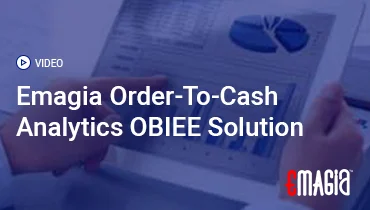Business checks are one of the oldest and most reliable methods for companies to make payments to vendors, suppliers, and employees. While many businesses today have turned to digital payment methods, business checks continue to play an important role in maintaining secure, documented transactions. In this comprehensive guide, we will explore everything you need to know about business checks, from their components to their benefits, and even how technology can help streamline check management.
Introduction to Business Checks
What is a Business Check?
A business check is a financial instrument issued by a company to make payments. It’s drawn from the company’s business checking account and typically contains key details such as the company’s name, address, and bank information. Business checks are primarily used for payments to vendors, suppliers, and employees, and they are essential for maintaining a secure record of financial transactions.
Why Do Businesses Use Checks?
Despite the rise of digital payment methods, many businesses still prefer to use checks because they offer a tangible paper trail. Checks also provide a way to control payments, allowing businesses to monitor when and how their money is being spent. Additionally, checks are often a preferred option for large transactions, as they provide a high level of security.
Importance of Business Checks in Financial Management
Business checks are not only a payment method but also a critical component of financial management. They help businesses keep accurate records of their expenses, ensuring compliance with tax regulations and auditing standards. A business check acts as proof of payment, which can be important in case of disputes or refunds.
Overview of Business Check Security
Business checks are designed with security in mind. From complex features such as microprinting to encrypted account numbers, checks are protected against fraud. Still, businesses need to take steps to safeguard their checks to avoid potential security threats like check fraud or theft.
Understanding the Role of Business Checks in Corporate Transactions
In corporate settings, checks are often used for payments that require a detailed and secure transaction record. Whether paying a vendor or reimbursing an employee, a business check ensures that the company’s finances are properly tracked and that payments are made promptly.
Types of Business Checks
Traditional Paper Business Checks
Traditional paper checks remain the most common form of business checks. These are typically issued by a company’s bank and come in a variety of styles and formats. While paper checks can be easily processed and tracked, they can also be more vulnerable to fraud.
Electronic Business Checks (eChecks)
Electronic business checks, or eChecks, are digital versions of traditional paper checks. They are transferred electronically through secure networks and provide many of the same benefits as paper checks. The main advantage of eChecks is their faster processing time.
Payroll Checks vs. Vendor Checks
Payroll checks are issued by businesses to employees as part of their compensation. Vendor checks, on the other hand, are used to pay suppliers for goods or services. Both types of checks contain similar components, but payroll checks often have additional details regarding tax withholding.
Bank-Verified Checks and Certified Checks
Bank-verified and certified checks are checks that have been validated by a bank. These checks guarantee that there are sufficient funds in the issuer’s account to cover the payment, making them more secure and reliable.
Business Checks for International Payments
International business checks allow companies to pay foreign suppliers or vendors. These checks are often processed through international banking systems, which may involve additional fees and currency conversion.
Understanding the Different Formats of Business Checks
Checks can come in various formats, such as single checks, duplicate checks, and multi-part checks. Businesses may choose a format depending on their needs, such as using duplicate checks for a backup record.
Key Components of a Business Check
Company Name and Address: Why It’s Important
The company’s name and address on a check provide identification and ensure that the payment is properly directed to the business. This information should match the details on the company’s bank account for consistency.
Bank Information: Account and Routing Numbers Explained
The bank’s name, the account number, and the routing number are essential components of the check. They ensure that the check is processed through the correct financial institution and account. The routing number is used to identify the bank, while the account number is linked to the company’s business checking account.
Payee’s Name and Amount Field: Accuracy is Key
It’s essential to accurately fill out the payee’s name and the amount (both in figures and words). Mistakes in these fields can lead to payment delays or even disputes, so it’s important to double-check the details before issuing the check.
Memo Field: Purpose and Proper Usage
The memo field allows you to specify the purpose of the payment. This helps with financial tracking and ensures that the payment is correctly recorded for future reference.
Check Number, Routing, and Account Number: What They Mean
Each check is assigned a unique check number, which is used for tracking purposes. The routing number identifies the bank, while the account number identifies the specific company account.
Signature Line: Who Should Sign and Why?
Only authorized individuals should sign business checks to ensure that payments are legitimate. A check should always be signed by someone with the authority to approve financial transactions, such as a company’s CFO or financial officer.
The Process of Writing and Issuing a Business Check
Step-by-Step Guide to Writing a Business Check
Writing a business check involves filling out the check’s key components: the company name, payee, amount, memo, and signature. It’s also important to keep track of the check number and account details for reconciliation.
How to Properly Fill Out the Payee’s Name and Amount Field
When filling out the payee’s name, ensure that it matches the recipient’s legal name or company name exactly. The amount should be written both numerically and in words to avoid any discrepancies.
The Importance of the Memo Field in Check Transactions
The memo field is critical for identifying the purpose of the payment. It should be filled out clearly, whether you are paying a vendor for supplies or reimbursing an employee for travel expenses.
When and How to Use a Business Check for Vendor Payments
Business checks are often used to pay vendors when the transaction amount is large or when the vendor prefers paper payments. These checks should be filled out with precision to ensure the payment is processed correctly.
How to Issue Payroll Checks to Employees: Best Practices
Payroll checks should be issued in accordance with the company’s payroll schedule. Ensure that all required tax withholdings are accounted for and that employees receive their checks in a timely manner.
Verifying Bank Information Before Issuing Business Checks
Before issuing a check, double-check the bank’s account and routing numbers to avoid errors. Ensure that there are sufficient funds in the account to cover the payment.
Business Checks vs. Other Payment Methods
Business Checks vs. Electronic Funds Transfers (EFT)
While both business checks and EFTs are used to transfer funds, EFTs are faster and more convenient. However, business checks provide a tangible record of payment, which can be useful for tracking large transactions.
Why Some Companies Still Prefer Business Checks
Despite the rise of digital payment methods, many businesses still prefer checks because of their reliability, security, and the ability to track payments more effectively.
Pros and Cons of Using Business Checks in Today’s Digital World
Pros include security, record-keeping, and acceptance across various industries. Cons include slower processing times and the risk of check fraud.
Business Checks vs. Credit Cards: Which is Better for Your Business?
Business checks offer greater control over payments and are more secure for large transactions. However, credit cards provide convenience and can be easier to track for small, frequent purchases.
Business Checks vs. Wire Transfers: Understanding the Key Differences
Wire transfers are typically faster and used for larger amounts. However, business checks provide a detailed record and can be canceled if necessary, while wire transfers are irreversible.
Security Considerations with Business Checks
How to Prevent Fraud with Business Checks
To prevent fraud, businesses should use secure check printing services, monitor bank statements regularly, and implement internal controls to ensure that only authorized personnel are able to issue checks.
How to Safeguard Business Checks Against Theft
Storing checks in a secure location, such as a locked drawer, is essential. Additionally, businesses should mark checks as “void” if they are lost or no longer needed.
Common Security Features Found on Business Checks
Business checks often include features like microprinting, watermarks, and special inks that make them harder to counterfeit. These features provide an additional layer of protection against fraud.
The Role of Banks in Preventing Check Fraud
Banks play a significant role in preventing check fraud by offering services like check verification and fraud monitoring. Businesses should also work closely with their bank to identify suspicious activity.
Detecting Fake Business Checks: What to Look For
Fake checks often have irregularities such as incorrect fonts, spelling errors, or poor-quality printing. It’s important to inspect every check thoroughly before processing.
How Check Printing Services Enhance Security
Many check printing services provide advanced security features to prevent fraud, including encrypted account information, holograms, and custom designs.
How Emagia Helps: Streamlining Your Financial Transactions with AI-Driven Automation
How Emagia’s AI-Powered Solutions Improve Business Check Management
Emagia uses AI-driven automation to streamline the process of managing business checks. It allows businesses to track payments in real time and ensures compliance with financial regulations.
Automating the Check Tracking Process: Why It Matters
Automating the check tracking process reduces the risk of errors and fraud, ensuring that each transaction is logged and reconciled promptly. This leads to better financial oversight.
Emagia’s Fraud Prevention Tools for Business Checks
Emagia’s fraud detection tools help businesses quickly identify suspicious activity and prevent fraud before it occurs. By leveraging AI, businesses can ensure that their checks are secure and authentic.
Real-Time Bank Reconciliation: How Emagia Simplifies Check Processing
Emagia’s real-time bank reconciliation feature makes it easier for businesses to match checks with their bank statements, reducing the time and effort spent on manual reconciliation.
How Emagia Integrates with Your Accounting Systems for Seamless Check Management
Emagia integrates with popular accounting software, enabling businesses to manage their financial transactions seamlessly and securely.
Emagia’s Document Management Solutions for Business Checks
Emagia’s document management solutions allow businesses to store and organize check-related documents securely, making it easier to track payments and maintain financial records.
The Future of Business Checks in the Digital Age
The Decline of Traditional Business Checks: A Trend or a Shift?
While traditional business checks are still in use, digital payment methods are gaining popularity due to their speed and convenience. However, checks are unlikely to disappear entirely due to their security features.
Are Digital Checks the Future of Business Payments?
Digital checks, such as eChecks, are likely to play a bigger role in the future as more businesses adopt digital payment solutions. They offer many of the same benefits as paper checks, with the added advantage of faster processing times.
The Role of Blockchain and Cryptocurrency in Business Transactions
Blockchain and cryptocurrency could revolutionize how business transactions are conducted, providing secure, fast, and transparent methods for transferring funds.
The Rise of Contactless Payments vs. Traditional Business Checks
Contactless payments are growing in popularity, especially for consumer transactions. However, traditional business checks continue to be widely used for large payments due to their reliability and security.
Will Business Checks Become Obsolete in the Next Decade?
While business checks may eventually become less common, they will likely remain a staple in the business world due to their security, record-keeping, and compliance benefits.
FAQs About Business Checks
What is a business check, and how does it work?
A business check is a payment method drawn from a company’s bank account, typically used for vendor payments, payroll, and other business expenses.
What are the key components of a business check?
The key components of a business check include the company’s name, payee information, amount, check number, account and routing numbers, and the signature line.
Are business checks safe from fraud?
Business checks can be vulnerable to fraud, but businesses can reduce risk by using secure printing services and monitoring transactions closely.
How can I ensure that my business checks are processed securely?
Use secure check printing services, regularly reconcile bank statements, and implement internal controls to safeguard against check fraud.
How does Emagia help with managing business checks?
Emagia offers AI-powered tools that streamline check tracking, automate reconciliation, prevent fraud, and integrate seamlessly with accounting systems.
What are the advantages of using business checks over electronic payments?
Business checks provide a reliable paper trail, offer higher security for large payments, and are widely accepted.
How do business checks help with financial record-keeping?
Business checks provide an accurate record of payments, which helps with financial tracking, tax reporting, and auditing.
What security features are present in modern business checks?
Modern business checks feature microprinting, watermarks, and other anti-fraud elements that make them difficult to counterfeit.
How can I track business checks for budgeting purposes?
Tracking checks can be done using accounting software or by maintaining a check register, which helps monitor cash flow and manage expenses.
Can business checks be used internationally?
Yes, business checks can be used internationally, though they may incur extra fees and require additional processing steps.
What should I do if a business check is lost or stolen?
Contact your bank immediately to stop payment on the check and ensure it doesn’t get cashed.



